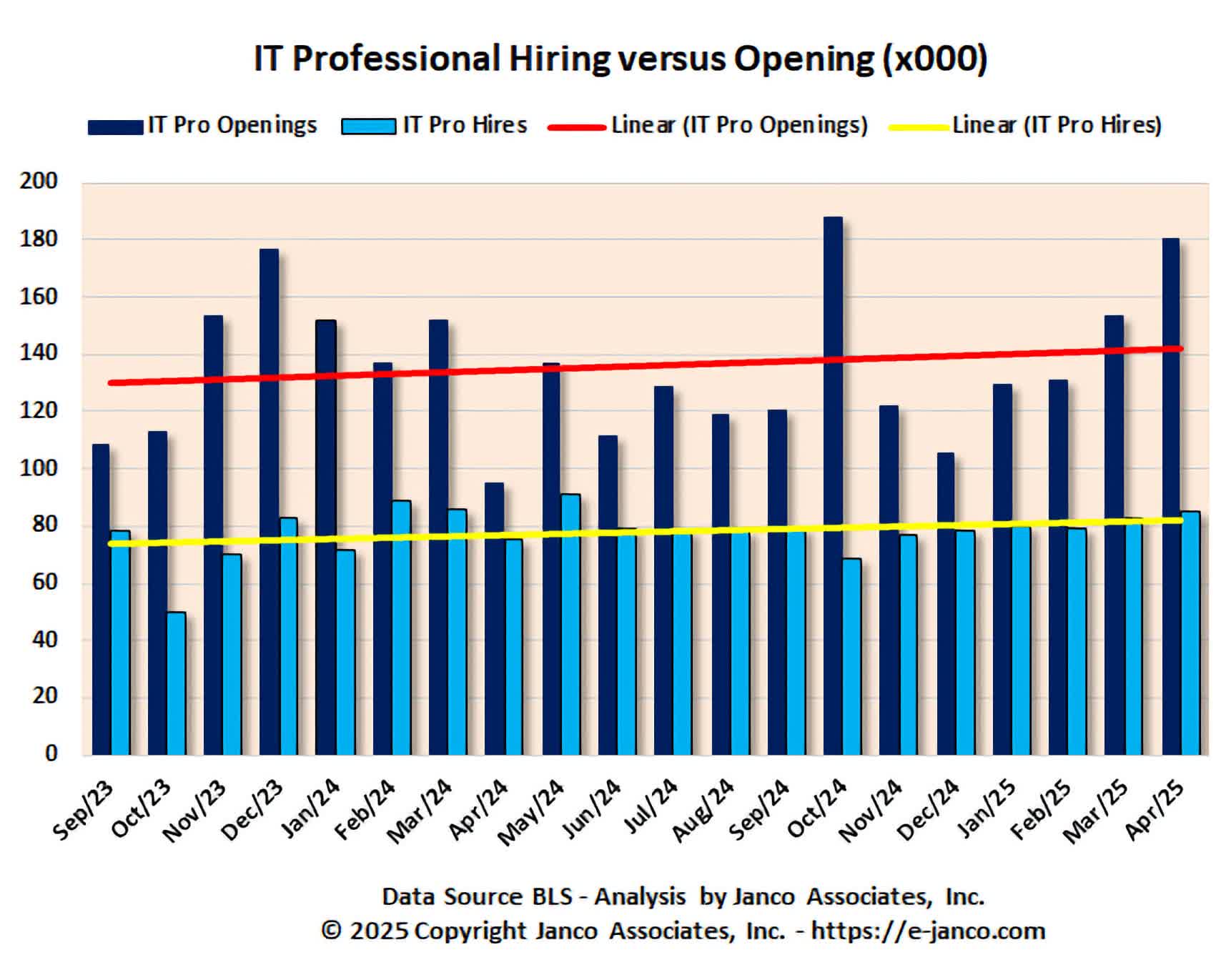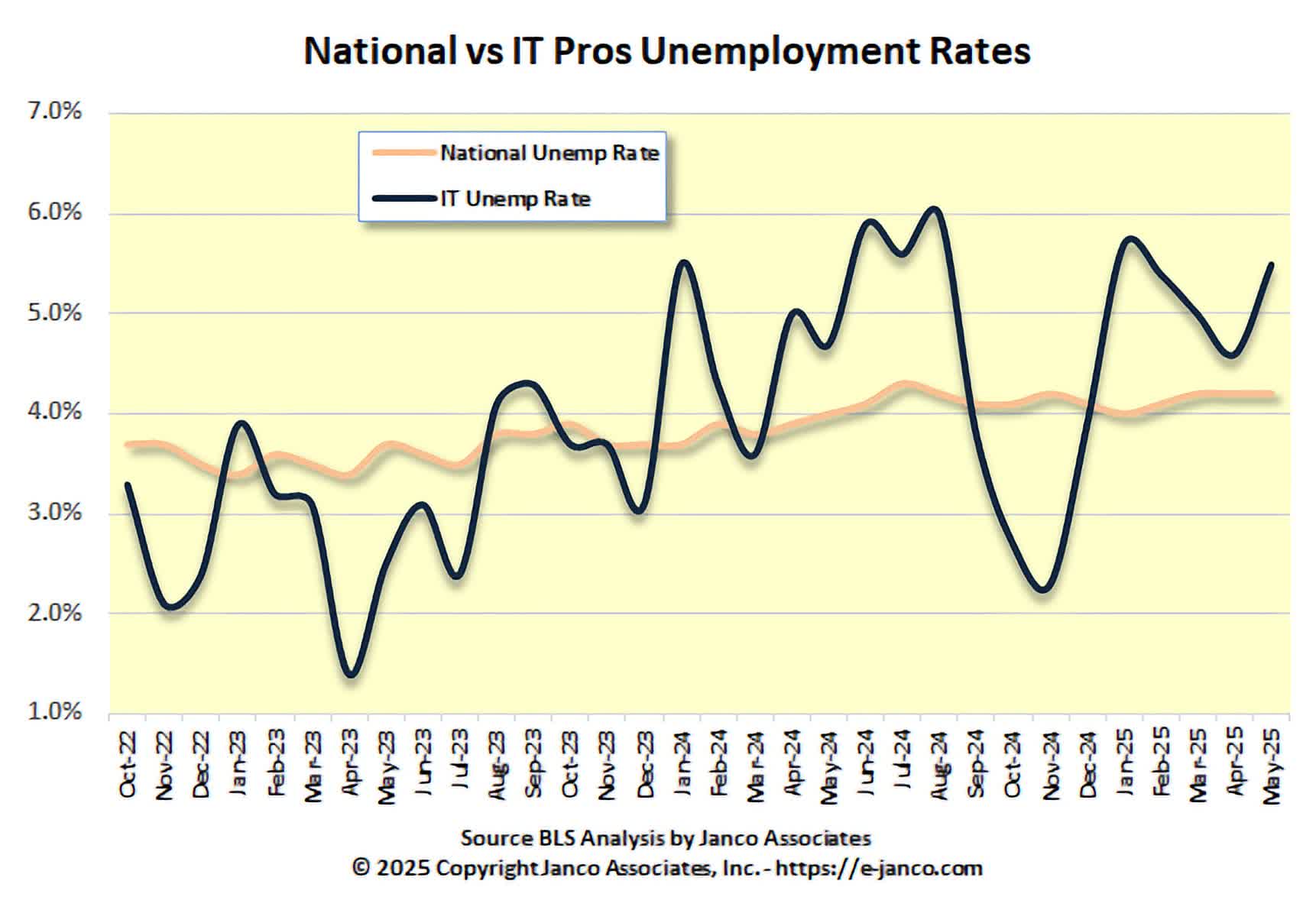In brief: After we had some good news about the UK tech jobs market last week, a new report on the US equivalent doesn't paint such as a rosy picture. The unemployment rate among IT professionals rose to 5.5% in May, marking the fifth month in a row that it has exceeded the national US average.
The report, from IT management consulting company Janco, states that the unemployment rate for IT pros in the United States jumped 0.9% from 4.6% in April to 5.5% in May.
As highlighted in another report from Janco in January – and mirrored in the recent data on the UK's job market – most open IT positions in the US right now involve work on large language models. Janco also pointed to roles related to blockchain technology and omnichannel commerce being in high demand.
"IT opportunities for IT pros will be poor except for AI implementations, which focus on improved productivity and staff reductions," Janco wrote.
As for the roles that are suffering most, the report notes that many job losses were concentrated in the communications sector, as well as those related to reporting, monitoring, and support.
IT professionals who will be feeling the pressure most are those with "legacy" skills located in smaller markets such as Nashville and Tulsa. Professionals in bigger locations like New York and Dallas are less likely to be affected.
Unsurprisingly, Janco writes that AI has been responsible for the eradication of many entry-level IT positions, especially those in telecoms. It's also eliminated IT jobs in compliance reporting and management.
"Companies do not have the desire to hire new staff to meet mandated compliance requirements," wrote Janco CEO Victor Janulaitis. "Ergo, they are focusing on AI to automate as many of those tasks as possible, especially for reporting and monitoring."
Generative AI has been automating jobs for several years now, despite repeated claims from execs that the technology is there to augment, not replace, workers. With more companies embracing AI agents – designed to replace humans in many roles by autonomously handling workflow decisions – the situation is expected to worsen.
Sebastian Siemiatkowski, CEO of buy now, pay later giant Klarna, is so concerned about AI replacing white collar jobs that he believes it will cause a recession. Dario Amodei, CEO of AI firm Anthropic, has a similar view. He said last month that AI could wipe out about half of all entry-level white-collar jobs in the next five years, leading to unemployment spikes up to 20%.


